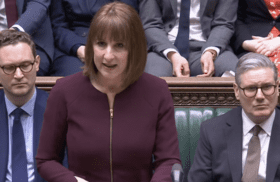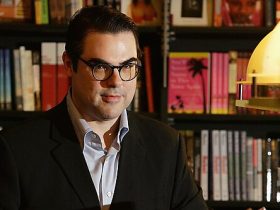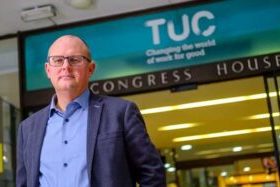Chancellor Rachel Reeves will travel to Washington this week to make the case for global free trade at the International Monetary Fund’s spring meetings, as Britain faces mounting pressure from punitive tariffs imposed by US President Donald Trump.
Reeves will use the high-profile forum — attended by global finance ministers and central bankers — to stress the importance of open trade for economic resilience and growth, both in the UK and worldwide. According to a senior government official, the UK’s heavy dependence on trade, with exports accounting for around 60 per cent of GDP, makes free trade not just a global concern but a national priority.
During the visit, Reeves is expected to meet US Treasury Secretary Scott Bessent — regarded as one of the more moderate voices within the Trump administration — to press for the removal of US tariffs on British car and steel exports. Allies say she will also push to accelerate talks on a potential UK-US trade deal, although she will make clear that any agreement must align with Britain’s national interest.
“Any deal that is able to be secured will always have front and centre British national interest,” Reeves said ahead of her departure.
The chancellor’s visit comes against a fraught economic backdrop, with the IMF expected to lower its global growth forecasts this week and issue fresh warnings over financial instability. Trump’s aggressive tariff regime has already caused significant strain on the world’s largest economies — including the EU, China and the US itself — and market turmoil is showing no signs of easing.
On Monday, while UK markets were closed for the bank holiday, US Treasury bonds and the dollar came under pressure from a sharp sell-off on Wall Street. The unrest was partly triggered by Trump’s renewed attacks on Federal Reserve chair Jerome Powell, who he accused of failing to cut interest rates. White House adviser Kevin Hassett has suggested Trump may be exploring ways to remove Powell from office — a move that would mark a major break with central bank independence.
While British officials are realistic about their slim chances of securing a full exemption from Trump’s 10 per cent global tariff, they are hoping to negotiate reductions on the more severe 25 per cent duties placed on specific UK goods. In an effort to find common ground, ministers have already offered several concessions to Washington, including targeted tax relief for US tech companies.
Reeves is expected to raise these points during bilateral talks in Washington, though expectations of an immediate breakthrough are low. “The timing is down to one man, so there is a degree of uncertainty there,” one UK government source said.
Trump and his advisers have made encouraging statements in recent days about the possibility of striking a trade deal with the UK. However, with the president’s policy unpredictability and his administration’s escalating pressure on trading partners, British officials remain cautious.
Ministers have prioritised a US-UK trade agreement as a cornerstone of the country’s international economic strategy, particularly as global protectionism rises. The Office for Budget Responsibility has warned that a full-scale trade war could shrink UK GDP by as much as 1 per cent by 2026-27.
In a bid to shield key industries, the government recently announced more flexible timelines for car manufacturers working towards the 2030 ban on new petrol and diesel vehicles. Other components of the UK’s industrial strategy — including support for the life sciences sector — are expected to be rolled out ahead of schedule as the government looks to boost growth and attract investment during a volatile economic period.
Read more:
Reeves heads to Washington to champion free trade amid Trump tariff tensions










